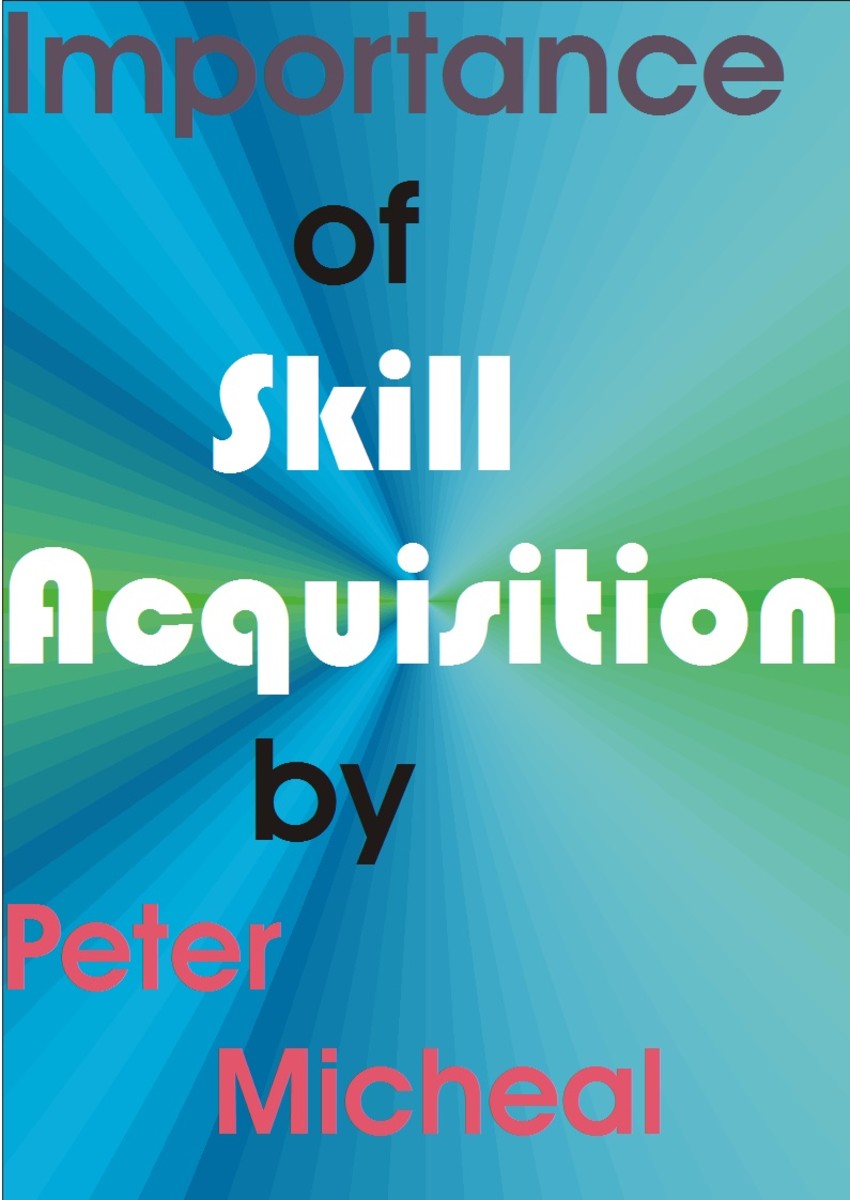Overworking: mental and physical health dangers for the self employed
In another hub I mentioned the dangers of working long hours and some of the external pressures to work too long, noting that prolonged overwork has severe negative implications for the ability to think and deliver. Here I look at the case of the self employed and those paid by the piece then at the internal pressures to work too hard.
Mental Versus Physical Work
Mental work is more tiring than physical work. With prolonged mental work motor functions are not affected by sleep deprivation but mental functioning is severely reduced. A study using soldiers running a combat simulation found that initially, when ordered to attack a (simulated) hospital they would analyse the target and refuse the order but after about 17 hours without sleep they would just attack. In a nutshell after being awake for 17 hours you may be able to fight your way out of trouble but almost certainly not be able to THINK your way out of trouble or avoid it.
Folklore has it that intense study heats up the brain (which takes up about a fifth of the body's oxygen needs) and is very tiring . Chess players know that they need to be physically fit to stand up to the demands of a long game and in Japan and China monks were trained in martial arts partly to ensure they were fit enough to meditate
Nowadays it is difficult to find work that does not require good cognitive performance. Any driver knows driving is tiring and lorry drivers, in Europe at least are restricted in the number of hours they can drive, and construction workers have to drive cranes and diggers or operate other heavy machinery. The only mindless job that comes to mind is washing dishes in a restaurant that does not have a dishwasher.
Self Employment
Adam Smith, in the “THE WEALTH OF NATIONS” put the risks of overwork admirably when discussing piece workers (my italics)
“Some workers, indeed, when they can earn in four days what will maintain them through the week, will be idle the other three. This, however, is by no means the case with the greater part. workers, on the contrary, when they are liberally paid by the piece, are very apt to overwork themselves, and to ruin their health and constitution in a few years. A carpenter in London, and in some other places, is not supposed to last in his utmost vigour above eight years. Something of the same kind happens in many other trades, in which the workers are paid by the piece, as they generally are in manufactures, and even in country labour, wherever wages are higher than ordinary. Almost every class of artificers is subject to some peculiar infirmity occasioned by excessive application to their peculiar species of work.”
The self employed run the same risks. Overwork for the self employed is a mixture of external factors ( deadlines, client demands, supplier delays etc) , semi-internal factors ( for example the fear of losing a client or the desire to pick up a big order) and internal factors discussed below. In the IT field an excess of autistic over achievers leads to cultures where long hours are considered normal and a forty hour week a sign of weakness and lack of commitment. One example of this it Google which has a culture of 80 hour weeks and rather than force employees to work shorter hours, allows on employee to give a course in self awareness self mastery and the creation of useful mental habits The good news is that nowadays I find many clients forbid externals to do (or at least charge ) overtime. The bad news is that externals kill themselves in order to please clients who are ultimately ungrateful "Excellent, you finished the work a month early. I hope you find a new one soon. Security will escort you off the premises.
In some industries teams of piece workers resist the pressure by determining an informal ceiling on production and using various social mechanisms to prevent any one worker over producing and so forcing other workers to work harder which might make employers reduce the piece rate. This is not done in the intensly individualistic field of IT.
Why we over work: Internal factors
There are many internal factors that make you work long hours. For example the Protestant Work Ethicwhich claims work is good regardless of whether it is useful, workaholism, perhaps to escape an unhappy marriage, or the lizard, which whispers in your ear that leaving after only eight hours makes you stand out and is DANGEROUS, never mind the long term dangers of overwork and sleep deprivation.
The Protestant Work Ethic is a historical anomaly that claims work is a path to salvation - whatever that may mean - and should be the main focus of life. The old saying “The Devil makes work for idle hands” put this in a nutshell. Like humour, Idleness, the commonest cradle of new ideas, should be avoided. If the work prevents thinking so much the better (Humour is an important but less common source of innovation and also deprecated). For if the sheep start thinking they might start thinking the preachers should support themselves, not just take a collection. Politicians prefer the serfs working long hours because it means these stallions of society are left alone to serve the people. A quote attributed to David Rockefeller summarises this "I don't want a nation of thinkers, I want a nation of workers"
Workaholism has many roots from low self esteem to hiding from a failing relationship. It tends to arise in the children of dysfunctional families. As a freelancer working away from home it is easy to slip into workaholic mode and having an exercise class or some form of life outside work in the evenings helps minimise this risk. Physical signs of overwork and possible burnout may include headaches, fatigue, indigestion, chest pain, shortness of breath, nervous tics or dizziness. Behavioural signs may include temper outbursts, restlessness, insomnia, difficulty relaxing, irritability, impatience, forgetfulness, difficulty concentrating, boredom and mood swings from euphoria to depression. Other signs include low libido and other dysfunctions.
And finally the lizard, or the resistance as it is sometimes called, the part of you that wants to blend in will make you work long hours because others are still working ( even if they arrived after you). Ignore it. If you think others will criticise you mention the time you came in and see if it makes any difference. If not seek other work.
Avoiding long hours
If your employer is making you work to the point of health or relationship damage there are two main alternatives, leave or sue. Leaving does not help others and you had better be sure a lawsuit will bring you enough money to live on while you change career. Perhaps circulating notes (anonymously) about how shorter hours are known to boost productivity and warnings of the dangers of prolonged overtime, making sure the board see them will help. If you do decide to leave mentioning the damage long hours are doing to the company and that you fear they mean the company will not survive till you retire, may help or may simply mean a bad reference. In the meantime techniques like double jacketing (leaving a spare jacket on your chair overnight while you go home), used in the 1988 recession, may help.
It is usually clear if the management are forcing you to overwork. Internal factors are less obvious. A good first step is to determine if you ARE workaholic. Take the quiz in one of the links below. If you think you are too busy for that the chances are you are a workaholic.
If you come from a religious background that emphasises the value of hard work remember that you have to keep yourself in a state where you can work and that involves relaxation, exercise and social contact outside work: family, friends and community.
In brief
Mental work is impacted more by over work than physical work, Almost all jobs nowadays have a mental component, even working on a building site. In addition to external pressures there are internal pressures to work too hard. The risk of overwork is higher for the self employed and those on piece rates. Work life balance and body maintenance with exercise are vital.








